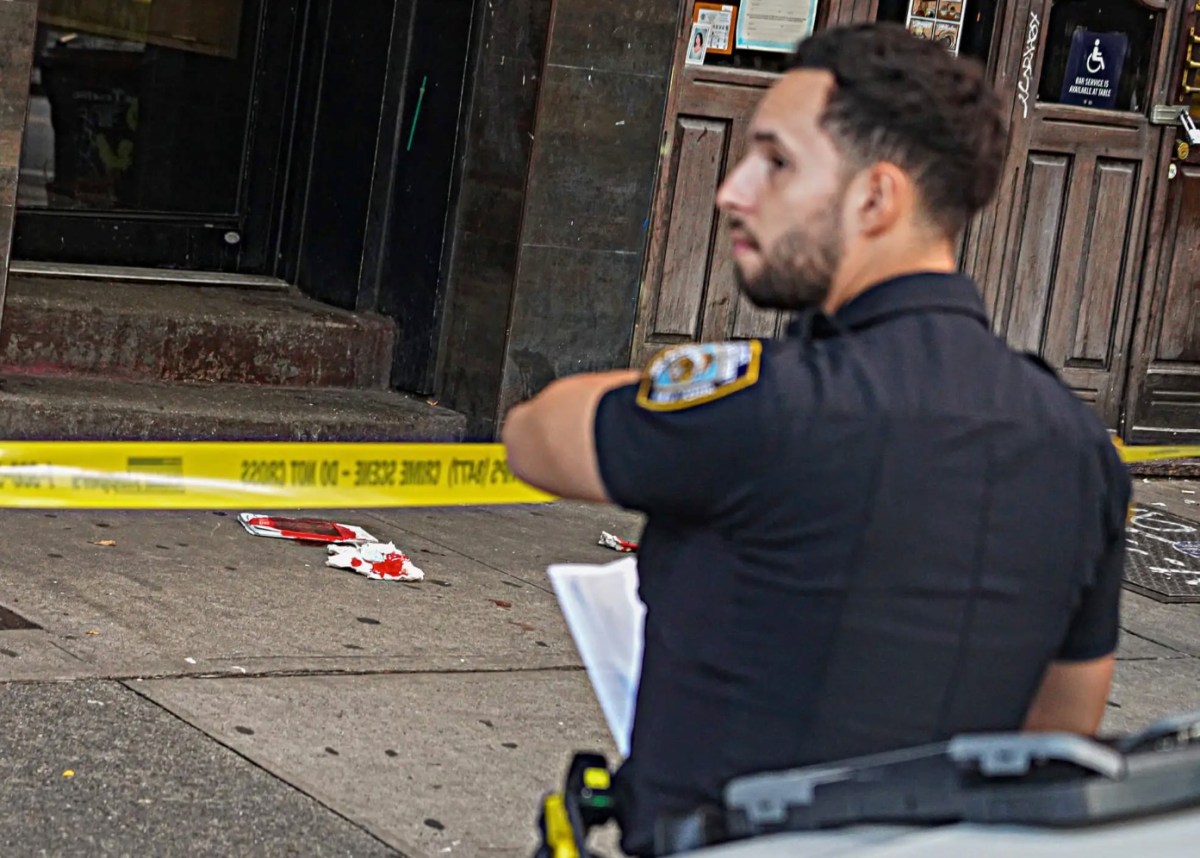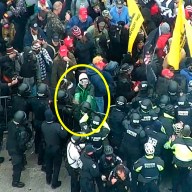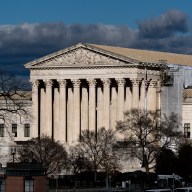Last year was a rocky one for the NYPD. The largest police force in the U.S. at 34,500 officers strong was consistently under scrutiny for highly publicized scandals and shocking revelations. Rape accusations against police, a ticket-fixing scandal, reporters arrested while covering Occupy Wall Street — with each embarrassing headline, New York’s Finest damaged its once record-high level of trust among the public.
In a post-9/11 world, New Yorkers willingly put their faith in the NYPD to protect them from another attack by any means necessary. Approval rating of the police force among the public was a soaring 76 percent in February 2002, according to a Quinnipiac poll. The NYPD has taken a swift and effective approach to terrorism, and there has not been another attack on its watch in 10 years. In fact, the overall approval of the NYPD remains exceptionally high, wavering between 60 and 69 percent.
But it’s when voters are polled on more specific issues, including headline-making scandals like the shooting death of Sean Bell and force used against Occupy Wall Street protesters, that a growing public mistrust begins to reveal itself. For example, in October of 2011, at the height of OWS, voters were split 46 to 45 percent in their approval of the way police handled the Wall Street protests.
“Officers risk their lives every day and the NYPD has been top-notch in protecting this city from terror attacks, both of which we all recognize and deeply appreciate,” said City Councilman Jumaane Williams, who represents Flatbush. “Where trust has taken a serious hit is in people’s day-to-day lives.”
Williams had his own run-in with police in 2011, when he was arrested at the West Indian Day Parade. Cops said Williams didn’t follow requests to stay behind police tape, but Williams, who is African-American, said he was a target of racial profiling, something that he said happens far too often in police work.
“We hear stories about a bad apple here and there, and the fact is we now have a bumper crop of bad apples,” Williams said.
One of the most shocking incidents to come out of 2011 was the trial of officers Kenneth Moreno and Frank Mata who were charged with the rape of a woman they were enlisted to help. Though they were only convicted of official misconduct, the case struck a chord with New Yorkers, especially among victims of sexual assault, who often hesitate to report their rapes.
“Even though the officers were acquitted, nothing could undermine public trust in the police — who are supposed to be guardians of people — more than charges that they use their unique powers to do good to perpetrate evil,” said John Jay professor and former NYPD officer and city prosecutor Eugene O’Donnell.
New Yorkers are indeed fed up and disappointed with the NYPD immediately after an embarrassing public gaffe. But the police force’s overall approval rating never dips too low.
Are New Yorkers willing to forgive in exchange for safety — and if so, how long will that last?
Some suggest outside review and retraining
Even after a scandal-ridden year for the NYPD, Mayor Michael Bloomberg made no direct reference to the gaffes during his 2012 State of the City Address earlier this month. Instead, he called the NYPD the best police force in the world.
“Commissioner [Ray] Kelly has done an outstanding job making sure that New York’s Finest are also the most upstanding,” Bloomberg said.
In what may have been a subtle nod to the rash of bad press, the mayor announced he would beef up attorney staffing by adding four lawyers to the Commission to Combat Police Corruption, which was established in 1995 to oversee anti-corruption programs within the NYPD. It is separate from the police force, but its strength is limited by its lack of subpoena power.
Sunita Patel, an attorney for the Center for Constitutional Rights, suggests New York City adopt an independent monitoring bureau, like those in New Orleans and Cincinnati, to increase transparency and rebuild trust.
“The police can’t be trusted to police themselves right now,” Patel said. “Instead, the police hide from public scrutiny.”
Kenneth Ramseur, an attorney whose clients include both police officers and those who sue the NPYD, said he believes many of the police force’s publicized mistakes are the result of poor training.
“After someone has been a cop four or five years, pull them off the street, give them a sabbatical and retrain them,” Ramseur said. The NYPD did not respond to inquiries about whether officers receive refresher training at any point during their careers.
Stop and frisk: A violation of constitutional rights?
Stop-and-frisk tactics, introduced under Mayor Rudy Giuliani’s administration and stepped up by Mayor Michael Bloomberg, let cops pat down anyone they suspect of a crime. Critics call it unconstitutional, while Bloomberg and NYPD Commissioner Ray Kelly credit the practice with lower crime rates and more arrests.
Attorney Kenneth Ramseur said stop-and-frisk is just another way for police to keep up with arrest statistics, though they rarely lead to a conviction.
“He’s not telling you the cops aren’t showing up in court and the cases are getting dismissed,” Ramseur said of Kelly. “He’s being deceitful to the public.”
Sunita Patel, an attorney working on Floyd, et al. v. City of New York, et al., a class-action lawsuit on its way to trial that challenges stop-and-frisk tactics as unconstitutional acts of racial profiling, said minorities are most frequently targeted.
“Unfortunately the NYPD has built a reputation of harassing black and brown residents rather than fighting crime,” Patel said. “This means that trust is eroded and communities are less safe.”
A call for limits for city chief of police
Ray Kelly is the only police commissioner in city history to hold the position for two non-consecutive terms. He started his most recent run in 2002 and has remained at the post throughout Mayor Michael Bloomberg’s time in office. Kelly was criticized last year in the wake of the NYPD’s handling of Occupy Wall Street and attention surrounding stop-and-frisk policies.
Eugene O’Donnell, a former NYPD officer and prosecutor who now teaches at John Jay College of Criminal Justice, suggests six-year term limits for the police commissioner, citing the danger of a role that goes relatively unchecked for an unlimited period of time.
“The Police Commissioner has the power to influence policing strategies, relationships with the community and the overall effectiveness and tone of law enforcement which in a practical way exceeds the power of the mayor,” O’Donnell said.
“Concentrating power in the hands of any one person for too long a period invites abuse,” he added.
Black eyes
West African immigrant Amadou Diallo was killed in 1999 in front of his Bronx apartment after he was shot 19 times by officers who said they thought he was reaching for a gun. He was unarmed. The four officers were acquitted of second-degree murder charges.
Police shot and killed 23-year-old Sean Bell the night before his wedding in 2006, when officers fired 50 bullets at the car he was in with friends. Three detectives who said they thought he had a gun were indicted but acquitted in 2008. The city paid a $7 million lawsuit to his friends and family.
33-year-old Vionique Valnord of Brooklyn was killed while hailing a taxi when she was struck by an SUV driven by a drunk, off-duty NYPD officer in 2009.
Michael Mineo publicly accused three cops of assaulting and sodomizing him with a baton in a Brooklyn subway station in October 2008. The three officers were acquitted in February, 2010.
Shem Walker was shot and killed during a scuffle with an undercover NYPD officer who was sitting on the stoop of his mother’s Fort Greene home in 2009. Walker, who was unarmed, supposedly had no idea the man was a cop.
Michael Daragjati, a white NYPD officer, pleaded guilty to civil rights violations after he bragged about arresting a black man in Staten Island in April of 2011.
Officer Emmanuel Tavarez pleaded guilty in April 2011 to robbing drug dealers of cash and drugs
NYPD officer Michael Pena was charged with the rape of a woman who said he attacked her when she asked him for directions while he was off-duty in Inwood in August 2011.
Seventeen police officers were indicted in September of 2011 in an alleged ticket-fixing scandal that got rid of traffic tickets for friends and family members with the help of cops.
Five NYPD cops were busted in October of 2011 for smuggling firearms and slot machines as part of a 12-person theft ring. The operation had been under federal surveillance the entire time.
An AP investigation in 2011 revealed the NYPD had been spying on New York Muslims by infiltrating mosques and student groups.
Commissioner Ray Kelly announced new infrared technology that will help police detect whether someone is carrying a gun without frisking them in January 2012. Critics argue that the tactic is invasive and unconstitutional.
Follow Cassandra Garrison on Twitter @CassieatMetro

















